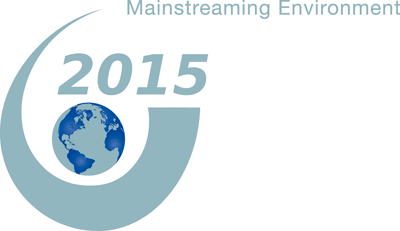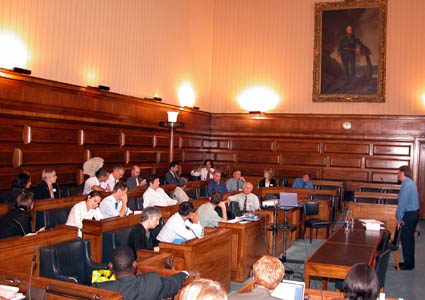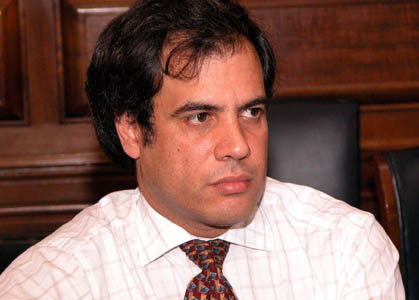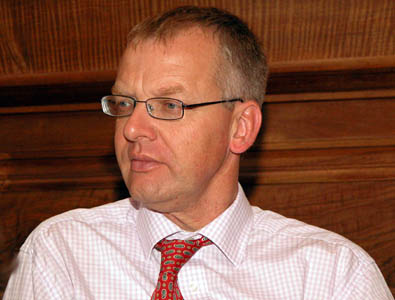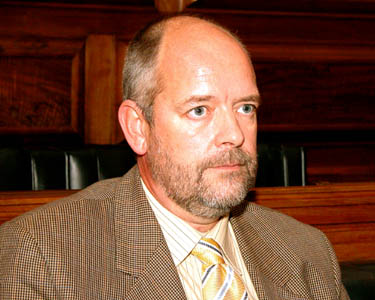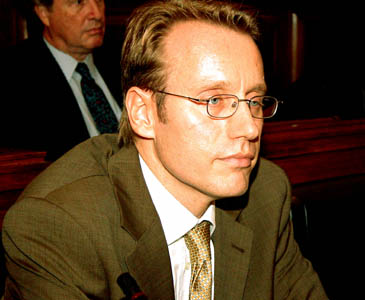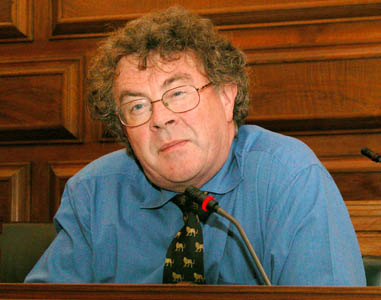|
|
Identifying a
mid-term strategy for creating prototype markets for
ecosystem services:
|
|
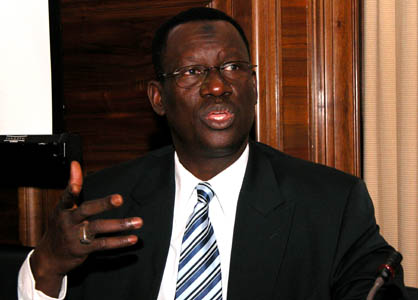
|
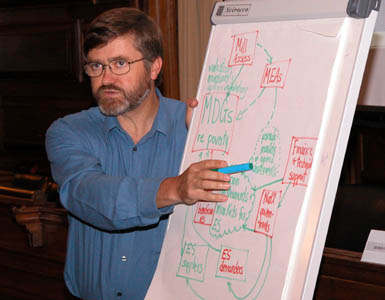
|
|
|
|
Bakary
Kante, Director of UNEP Division of Environmental
Conventions (DEC), emphasized that the key role of MEAs in the
creation of ecosystem services needs to be further explored
and clarified, in cooperation with MEAs themselves.
|
Chair Brent Swallow
highlighted the linkage between economic instruments, Millennium
Development Goals (MDGs) and
MEAs. He questioned how governments can support the
development of financial and technical instruments, support
demand, shape the conditions for suppliers and link all this
with welfare effects. He considered possible impacts on
people in the areas concerned, effects on poverty, and
possible regulation when directly and indirectly affected
people do not participate in MES.
|
|
|
|
Discussion
on experiences from the field:
|
|
|
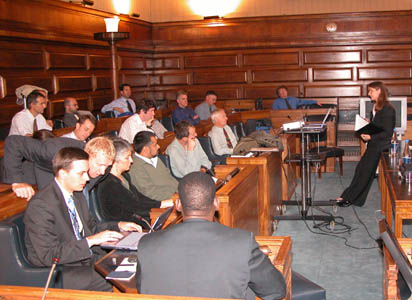
|
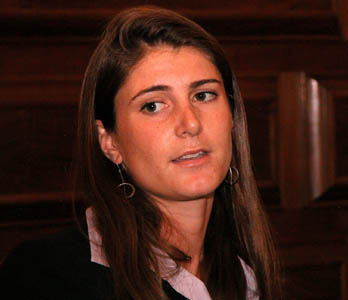
|
|
|
|
Amanda
Hawn,
(right) The Ecosystem Marketplace, presented two projects
creating MES in the
US
and in Tanzania, related to land use change. She highlighted that
institutional investors are interested in a diversified
portfolio and long-term returns, and showed that the projects
looked at different income streams and stocked them. She said
that bundling values in a multi-credit market increases
opportunities and value of sales, and suggested using
sequencing in assessing whether MES are real and active.
|
|
|
|
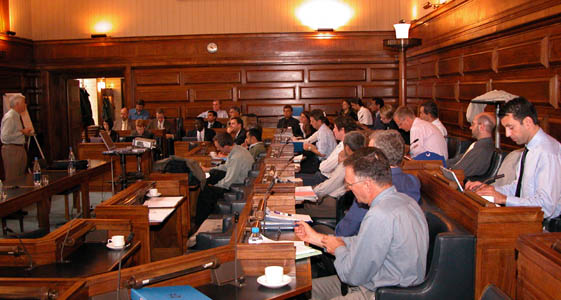
|
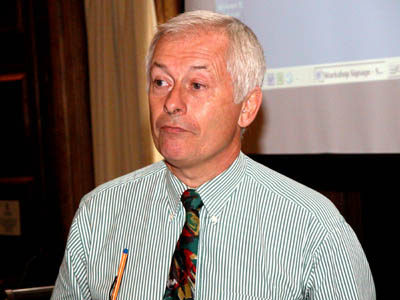
|
|
|
|
Jeff Sayer,
(right) World Wildlife Fund (WWF),
reported on two projects transferring financial resources to
local communities for forest services in Indonesia,
where the establishment of funds for social infrastructure
development avoided difficulties in allocating compensation
to individuals. He noted the difficulty in ensuing
long-term benefits to ecosystems, and the importance of law
and contract enforcement for the success of the projects. |
|
|
|
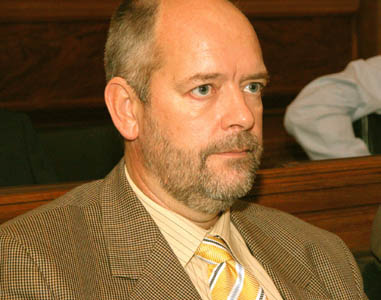
|
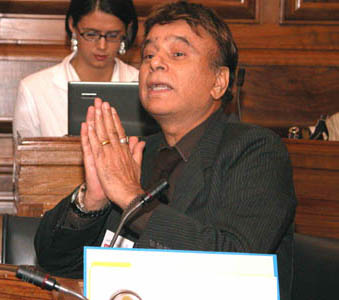
|
|
|
| Bert Lenten,(above left) Executive Secretary of the African-Eurasian Waterbirds
Agreement (AEWA), questioned the stability of payments for ecosystem
services, and Sayer said that the WWF projects opened the
route in the hope of a long-term government involvement in
MES. Madhav Mehra, (above right) President of the World Council for
Corporate Governance, reported on a project in India, in which payments for forest ecosystem services were used
for creating income-generating opportunities for the women of the interested
community.
|
|
|
|
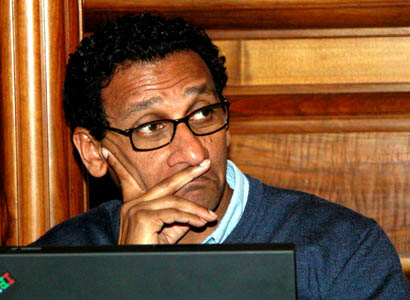
|
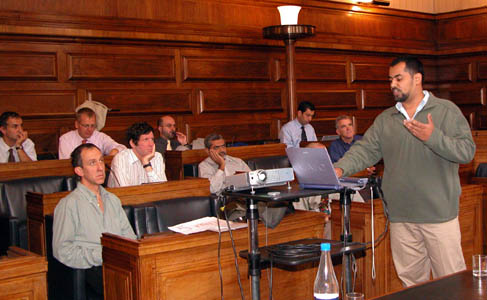
|
|
|
|
Ahmed
Khan, (right) South Africa,
presented a project on invasive alien plants management,
underscoring the importance of partnerships and prevention. He highlighted that a core environmental problem may
unlock multiple developmental opportunities, link ecological
integrity and social justice, and provide tools for
beneficiaries to maximize their returns. Anantha Duraiappah,
(left) International Institute for Sustainable Development (IISD),
enquired about market incentives, and Khan
pointed the creation of employment opportunities in the invasive alien plant
management crew and road clearing team.
|
|
|
|
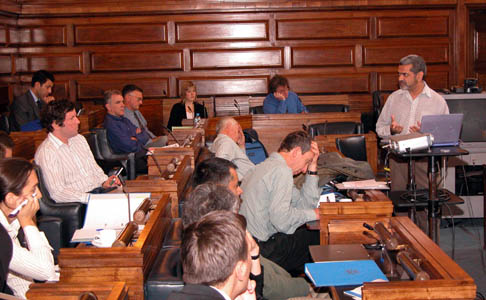
|
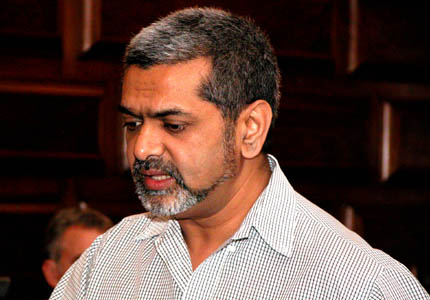
|
|
|
| Mahomed
Vawda, South Africa, outlined a water support programme
enhancing food security for the poor, making water available
free of charge, providing financial support to resource-poor
farmers, and promoting economic development of rural areas. He
highlighted both private and public financing for water
infrastructure, noting that the introduction of new irrigation
systems enhanced the viability of agricultural enterprises. |
|
|
|
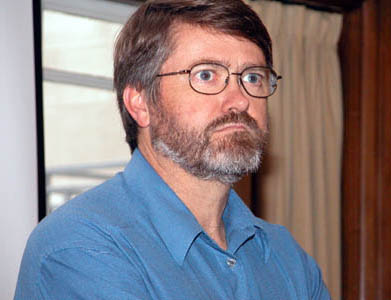
|
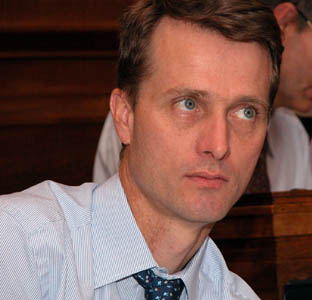
|
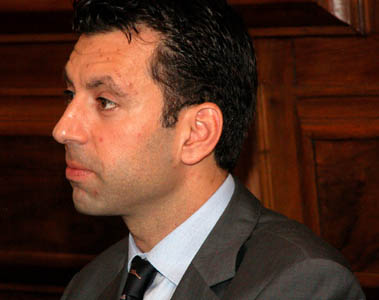 |
|
|
|
| Chair
Brent Swallow (above left) presented a project to reward
upland poor for environmental services in Asia, in which public
and private agencies empowered and provided incentives to
farmers for maintaining water, biodiversity and carbon
sequestration services. He noted that rewards consisted in:
enhanced land tenure security, development rights, revenues from
carbon credits, infrastructure development and payments from
trust funds. Charles
Arden-Clarke, (above center) UNEP, enquired about scoping
projects, and chair Swallow noted that this was needed to gather
a minimal base of evidence supporting the start of the project. Kaveh Zahedi, (above right) UNEP/World Conservation Monitoring
Centre (WCMC), enquired about the beneficiaries and suppliers of
biodiversity services. |
|
|
|
|
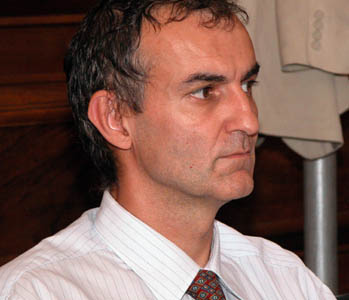
|
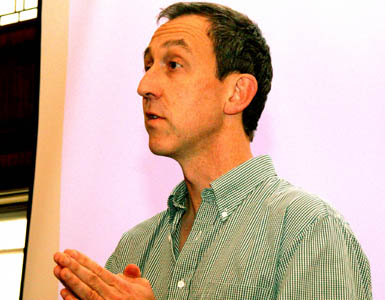
|
|
|
| Ivan
Bond, (right) International Institute for Environment and
Development (IIED), highlighting the need to: put in place participatory processes,
benefit the poor, reduce transaction costs in understanding
underlying ecological conditions, and be clear on which
environmental services should be generated by concerned
communities. He suggested understanding the reasons of poverty
in a specific area to create MES, building partnerships with
stakeholders and offering a negotiation support system. Alain
Lambert, (left) UNEP, commented that MES should aim
principally at achieving environmental protection without
aggravating poverty, rather than aiming directly at poverty
reduction. He called for a combination of economic and command-and-control tools, and cautioned against underestimating the
cultural and political dimension of MES.
|
|
|
|
MEAs
and the creation of pro-poor markets for ecosystem services:
|
|
|
|
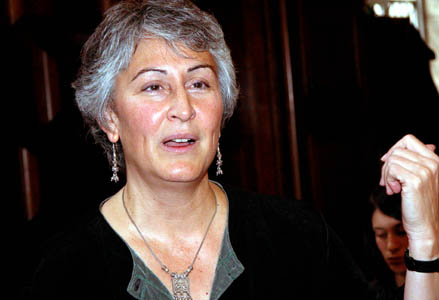
|
Marceil Yeater, (left) Convention on International Trade
in Endangered Species of Wild Fauna and Flora (CITES),
highlighted CITES' experience in trade-related instruments for
environmental protection, as well as issues of law enforcement and
corruption at the national level. She mentioned that CITES'
strategic vision includes a goal on responsible trade, based on
sustainable use and the need for social and economic incentives,
and stressed the link between CITES and achieving MDGs.
|
|
|
|
|
|
Simon
Rietbergen, (above right) IUCN, enquired about biodiversity services, and
Yeater pointed to the areas of recovering endangered species and
protecting their habitats. Zahedi
enquired about barriers to sustainable trade, with Yeater referring to
an information barrier, due to the need to clarify the rules of the
Convention to governments and the private sector.
José Garibaldi, (above left) Energeia, enquired about identification
of species under the Convention and their economic value.
|
|
|
|
|
|
|
|
Robert
Hepworth, (above right) Executive Secretary of the Convention on
the Conservation of Migratory Species of Wild Animals (CMS),
underscored the need to obtain MEAs State parties’ support,
proposing to discuss MES at the upcoming Conferences of the Parties (COPs)
with a view to have COP recommendations on the MES initiative. He
encouraged exploring the potential of involving private corporate
players, and cautioned against using the “ecosystem services”
terminology within MEAs, given the resistance of some Parties under
the Convention to Combat Desertification. Bert Lenten, (above
left) Executive Secretary of the African-Eurasian Waterbirds Agreement
(AEWA), emphasized the need for communication of available
knowledge on ecosystem services to MEAs State parties, suggesting that
UNEP/DEC present on this and on the MES initiative at upcoming COPs.
He also noted that ecosystem services are relevant, in different ways,
not only to poor but also to rich countries, especially in the case of
migratory species, and was supported by Rüdiger Strempel,
(above center) Executive Secretary of the Agreement on the
Conservation of Small Cetaceans of the Baltic and North
Seas (ASCOBANS).
|
|
|
Chair’s
summary:
|
|
|
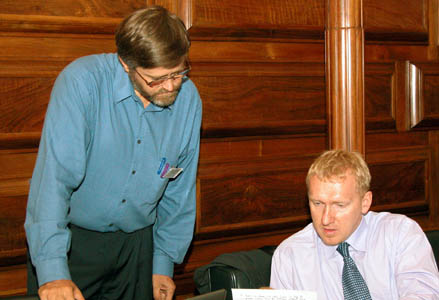
|
Chair
Swallow said that the experiences from the field provided
a sample of available evidence on innovative financing
mechanisms linked to ecosystem services, which can feed into
other learning experiences on MES and MEAs. He highlighted that:
the case studies improved scientific understanding of MES; MEAs
define opportunities and constraints for MES at the national and
local level; and the relationship between the needs of the poor,
poverty processes and environmental protection defines
imperatives for, and feasibility of, payments for ecosystem
services. He remarked that the discussion on engaging MEAs in
the creation of MES pointed to the: limited room of maneuver
within MEAs Secretariats, need for decisions by their State
parties, and importance of terminology in the context of legally
binding instruments. He finally identified possible future steps
for UNEP/DEC, such as: raising awareness about MES at the
upcoming MEA COPs; establishing an advisory mechanism for
creating MES in the context of MEAs; and developing MES pilot
projects.
Left photo L-R: Chair
Swallow in consultation with Bradnee Chambers,
United Nations University (UNU)
|
|
|
|
|
|
|
|
|
|
|
|
|
